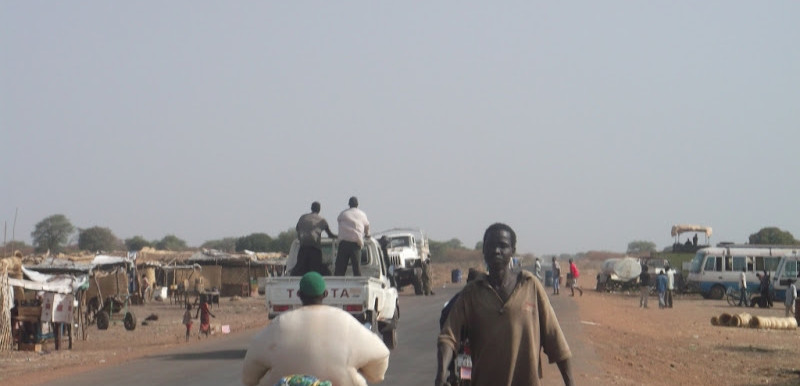The Dinka Ngok have elected a new paramount chief of their nine chiefdoms. Bulabek Deng Kuol has described how the death of the late Kuol Adol has strengthened unity amongst the Ngok community on Thursday during his funeral in Abyei.
Speaking to Radio Tamazuj in an exclusive interview, Bulabek claimed:
“Truly Kuol’s death became a strength or strong reinforcement to the Ngok Community so that they can increase their struggle more and face the challenges existing in the area,” disclosed the new leader.
Bulabek claimed that although Deng Kuol was killed by elements of the nomadic Misseriya tribe, he is sure that this is not representative of the Misseriya people in general but urged them to take responsibility.
“… I’m sure that within the Misseriya there are people who may have probably regretted what happened and they knew it was not correct. But they will take responsibility because they accepted wrong policies which resulted in this…” the new chief remarked.
Bulabek stipulated that the killing must be resolved before he could cooperate with the Misseriya in the name of the Dinka Ngok.
“Truly by God at the moment if the issue has not been solved I do not think there will be cooperation,” he maintained.
According to Abyei residents, who are mostly Ngok Dinka, there are few Misseriya in the area since the incident last weekend. Misseriya UNISFA staff were allegedly transferred due to the risk of insecurity, although the UN mission was unable to confirm this.
Who is Bulabek Deng Kuol?
Bulabek Deng Kuol is one of the sons of Kuol Arop. He comes from the Abior chiefdom, one of nine in Abyei.
After attending secondary school in Juba, he joined Omdurman Primary Health institute in 1980 and worked in Juba Teaching Hospital later that year.
In 1987, he became director of Primary Health Care for the Sudan Council of Churches (SCC) in Khartoum before attending al-Gazera university in 1991 and, as a medical doctor with no political or military background, became director of the Abyei Hospital in 2012.
File photo: a street in Abyei (Radio Tamazuj)




